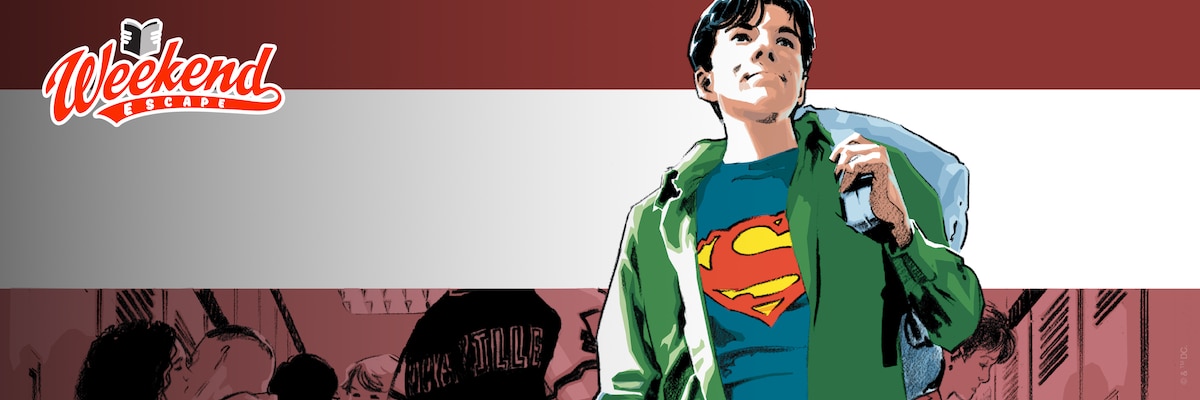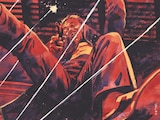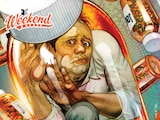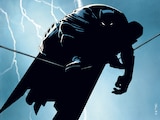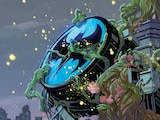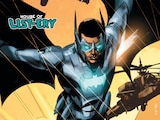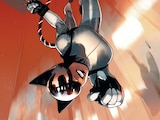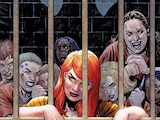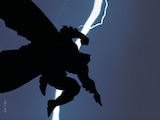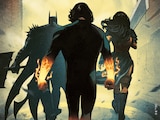Each Friday, we'll be letting a different DC.com writer share what they'll be reading over the weekend and why you might want to check it out. Here's this week's suggestion for a perfect Weekend Escape!
What if Superman was one of us? As the ultimate power fantasy, it’s among the first questions we’ve asked for nearly a century whenever we open a Superman comic or see him on screen. What problems would he solve in real life? Outside the world of comics, would he still be a force for good, or would he be corrupted by his power? Or, maybe, he’d be someone who just wanted to be left alone?
“Superman, but in Real Life” has been a concept that many both in and out of DC have tackled. But in its simple elegance, there are few treatises quite so cogent as this Elseworlds masterpiece from 2004. In Superman: Secret Identity, you will believe that a man who flies is, in fact, a man.
THE PREMISE:
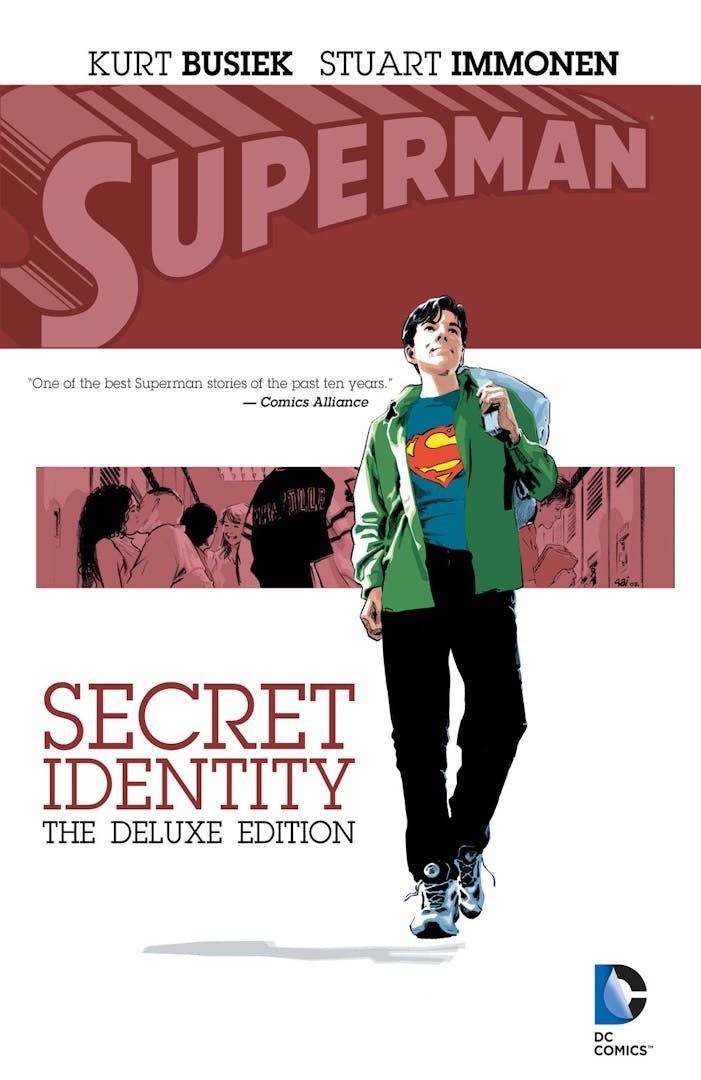
In 1985, Elliott S. Maggin and Curt Swan created a story for DC Comics Presents #87 that would give us one of the most important characters in the history of DC’s crisis events: Superboy-Prime. It was within a story about Earth-Prime, a world almost identical to our own. A world of mundane lives where superheroes are the work of fiction. But here, Maggin and Swan presented us with one exception. Earth-Prime, too, has its own Clark Kent, last survivor of Krypton. Except this Clark was named after the fictional character of Superman, and has only just come into his powers. How does a Superman function in a world where Superman already exists as a work of fiction? What would that mean for your own identity?
These were the questions that inspired Kurt Busiek to write his own treatment on the life of Superboy-Prime, the only superhero in a very real world. Over almost twenty years of development, that story would transform into Superman: Secret Identity.
In Secret Identity, we don’t even get to learn exactly where this Clark Kent’s powers came from. He spends his whole life searching for answers. Discovering his powers as a teenager, Clark’s “secret identity” here feels all too familiar to anyone who has ever grown up feeling like they had to hide a part of themselves from the world. Twenty years after its publication, it’s a story that makes you want to stand up and shout at Clark to live in his truth. But anyone who’s been there knows that it’s never been so easy. To Clark, fully confronting the potential of Superman would mean losing everything that grounds him as a person in the exchange. Even in this universe, Clark is a good person. He does what he can to help people in as real a way as he can. But how much can he allow himself to do before the responsibility of Superman entirely consumes who he is as a person? Secret Identity explores this unique take on Clark’s relationship with his dual selves at every stage of his life, from childhood to old age.
LET’S TALK TALENT:
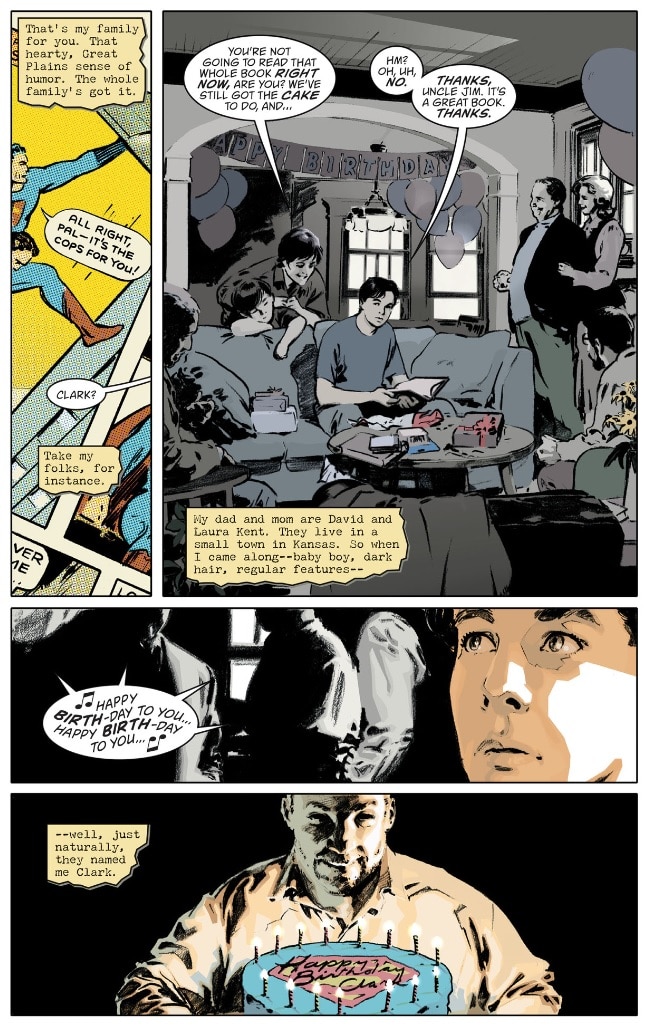
We’re confident in saying that there is no person alive who has thought more or better understands the concept of superheroes than Kurt Busiek. In particular, his magnum opus Astro City stands as a thirty-year meditation on the dynamics and conventions of superhero comics as applied to deeply human characters. His “Samaritan” in that series, very much an analog for Superman, has more than just powers in common with Clark as we find him in Secret Identity—both treasure the precious time they get to spend as themselves. Busiek’s treatment of Superman here convinces us to sympathize with the Man of Steel and understand that even a man capable of changing the world every second deserves a life of his own.
Stuart Immonen’s work on Secret Identity may be the best of his entire career, and there’s plenty of competition. At DC alone, Immonen gave us six years of Superman comics, five years of the Legion of Super-Heroes and one of the hidden gems of DC’s event history, The Final Night (which has been a previous recommendation in “Weekend Escape.”) Here, Immonen’s penchant for sweeping vistas and double-page spreads make the majesty of flight feel as wonderful to the reader as Clark himself.
A FEW REASONS TO READ:
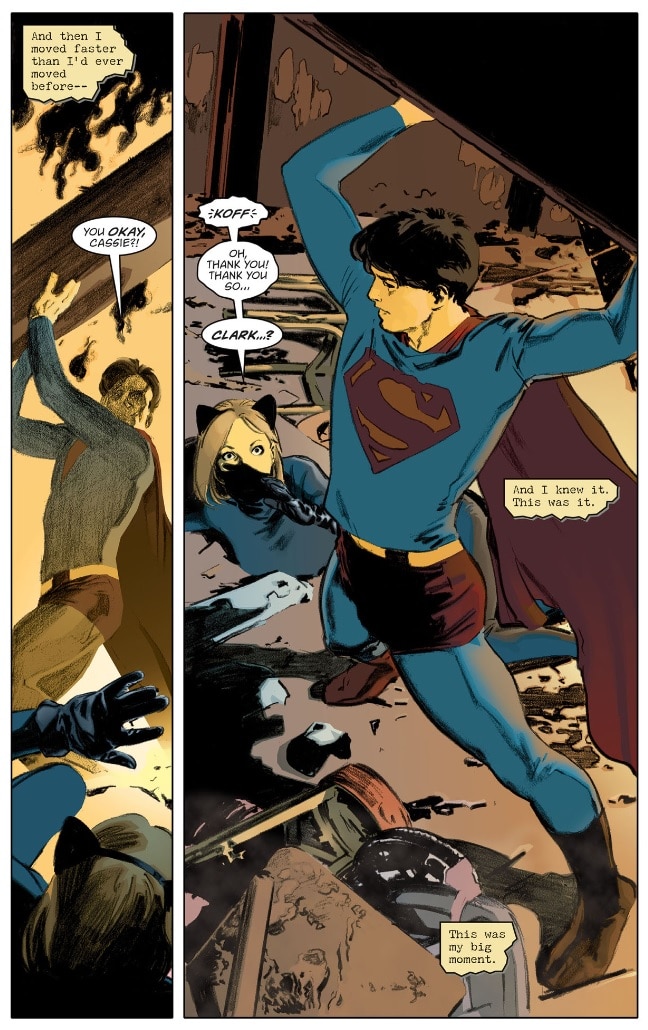
- Less Super, More Man: The most common complaint from the Superman skeptic is that Superman’s powers are so vast, that they preclude him from being relatable. Perhaps more than anything else, Secret Identity is a thesis in dispelling that myth. It’s never been Superman’s abilities that make him interesting, but the humanity and the goodness within him that determines how he uses those powers. In Secret Identity, we find a Clark who never asked for his place in life, without any point of cultural reference than the humanity he grew up alongside.
- Breathtaking Spreads: The visuals of Secret Identity are a major factor in what’s made it such an enduring work in the Superman canon. To take advantage of Immonen’s panel layout, frequently spreading across two pages at a time to evoke a sense of wonder in the scope of Superman’s powers, we recommend reading Secret Identity physically, if you can, or on the largest digital device available to you.
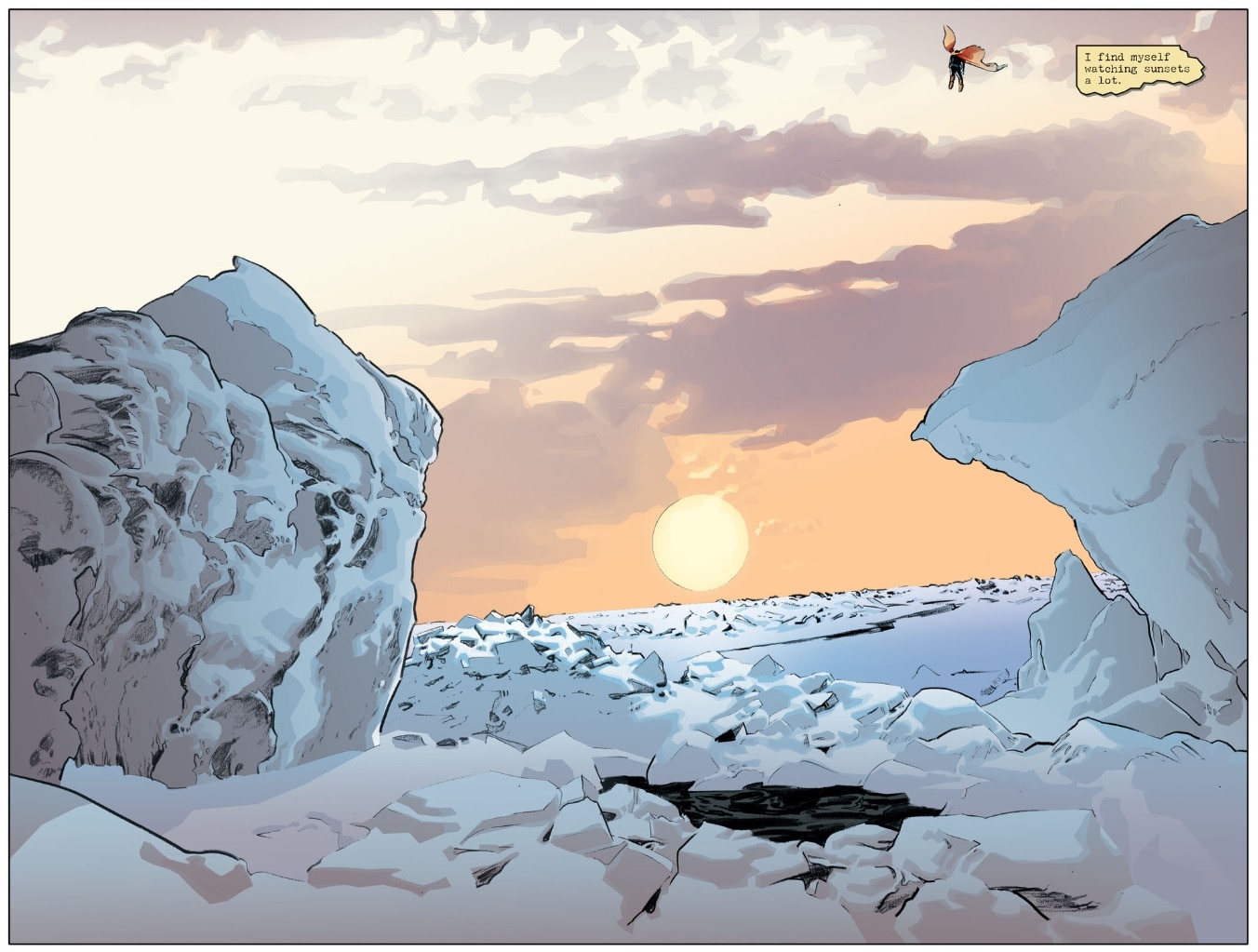
- Being Normal About It: Though likely unintentional, one of the most charming aspects of Secret Identity is that, despite writing a comic that is ostensibly about a guy with Superman’s powers who does not care about Superman, Busiek can’t help but let his deep love for the character shine through. Even Clark’s bullies make jokes to him about Metallo, for example. How many of your high school bullies knew who Metallo was?
- A Clois Essential: Although far from the traditional Clark and Lois relationship—Clark’s Lois here isn’t even Lois Lane, but an Indian American designer named Lois Chaudhari—the love that this Clark and Lois share is one of the most heart-stirring versions of this romance we’ve seen in any medium. The scene where Clark finally reveals his secret to Lois is perhaps the best iteration of that moment in any medium to date.
WHY IT’S WORTH YOUR TIME:
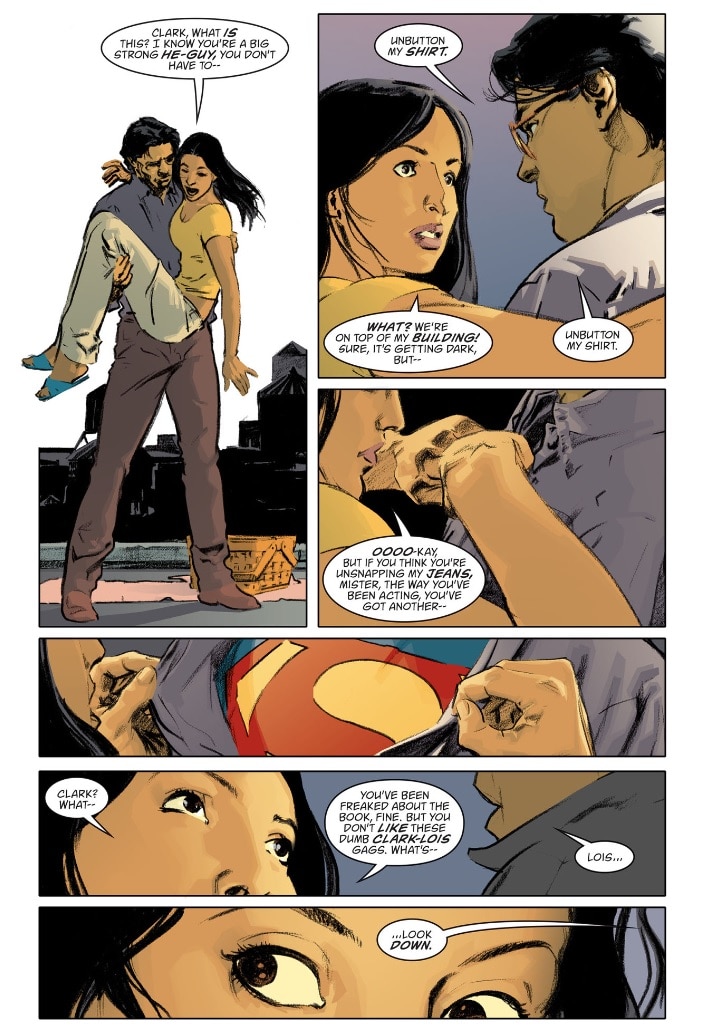
With the Superman movie just weeks away, we’re all thinking about our own relationships with the character. Superman stands for a message of hope, and as an inspiration to do what we can with the power we have. But as we find that inspiration, Secret Identity is essential reading as an important reminder not to lose ourselves in that mission. As noble as it is to save others, our own identity as a person is also worth saving. There’s nothing wrong with taking the time to make a life for yourself. In fact, if you don’t, you’ve missed the point of life altogether. Even a Superman deserves to live.
Superman: Secret Identity by Kurt Busiek and Stuart Immonen is available as a hardcover deluxe edition graphic novel in bookstores, comic shops, libraries and digital retailers. It can also be read in full on DC UNIVERSE INFINITE.
Alex Jaffe is the author of our monthly "Ask the Question" column and writes about TV, movies, comics and superhero history for DC.com. Follow him on Bluesky at @AlexJaffe and find him in the DC Official Discord server as HubCityQuestion.
NOTE: The views and opinions expressed in this feature are solely those of Alex Jaffe and do not necessarily reflect those of DC or Warner Bros. Discovery, nor should they be read as confirmation or denial of future DC plans.
